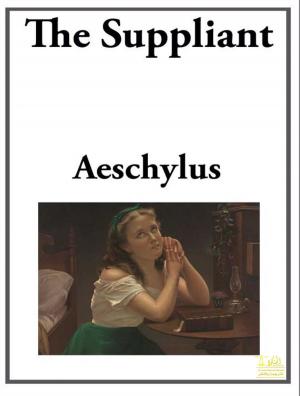| Author: | Various | ISBN: | 9780599303133 |
| Publisher: | Lighthouse Books for Translation Publishing | Publication: | March 27, 2019 |
| Imprint: | Lighthouse Books for Translation and Publishing | Language: | English |
| Author: | Various |
| ISBN: | 9780599303133 |
| Publisher: | Lighthouse Books for Translation Publishing |
| Publication: | March 27, 2019 |
| Imprint: | Lighthouse Books for Translation and Publishing |
| Language: | English |
Felicia Hemans and the poetesses of England! Such would probably be the form in which the toast would run, if literary toasts were the fashion, or such a mode of compliment the one exactly suited to the case. Not that we would venture positively to assert that Mrs Hemans stands at the head of our poetesses, the first absolutely in point of genius,—though there is but one name, that of Joanna Baillie, which occurs to us, at the moment, as disputing with hers that pre-eminence,—but because she, in a more complete manner than any other of our poetesses, represents the mind, the culture, the feelings, and character, of the English gentlewoman. Her piety, her resignation, her love of nature and of home,—that cheerfulness easily moved by little incidents, that sadness into which reflection almost always settled,—all speak of the cultivated woman bred under English skies, and in English homes. Her attachment to the privacy of life, her wise dislike and avoidance of the éclat of literary renown, and the dull, dry, fever-heat of fashionable circles, tend to complete her qualifications as a fitting representative of her fair countrywomen. The cultivation of her mind, in its weakness as well as elegance, savoured, perhaps, too much of what we are compelled to call feminine. Alive at all times to beauty in all its forms, to music, to tender and imaginative thought, she seems to have been almost equally averse to whatever bore the aspect of an analysis of feeling, or an approach to a severe investigation of truth. Present her with the beautiful, but spare her all scientific dissection of it. Let the flower live as her companion; do not rend it to pieces to show its conformation. Let but the faith be tender and true to the heart, and disturb her not with rude inquiries whether it possess any other truth or not. That too much melancholy (at least for her own happiness) which is traceable in her poems, arose in part from events in her life, but in part, also, from this too partial and limited cultivation of the mind. The feelings were excited or refined, but the reasoning powers not enough called forth: no task-work was therefore given to the active intellect; and a mind that could not be at rest was left to brood over sentiments, either the sad heritage of all mortality, or the peculiar offspring of afflictions of her own. We are not imputing, in this remark, any shadow of blame to her; we make the remark because we think that, eminent as she was, she still suffered much from the unwise and arbitrary distinction which is made in the education of the two sexes.
Felicia Hemans and the poetesses of England! Such would probably be the form in which the toast would run, if literary toasts were the fashion, or such a mode of compliment the one exactly suited to the case. Not that we would venture positively to assert that Mrs Hemans stands at the head of our poetesses, the first absolutely in point of genius,—though there is but one name, that of Joanna Baillie, which occurs to us, at the moment, as disputing with hers that pre-eminence,—but because she, in a more complete manner than any other of our poetesses, represents the mind, the culture, the feelings, and character, of the English gentlewoman. Her piety, her resignation, her love of nature and of home,—that cheerfulness easily moved by little incidents, that sadness into which reflection almost always settled,—all speak of the cultivated woman bred under English skies, and in English homes. Her attachment to the privacy of life, her wise dislike and avoidance of the éclat of literary renown, and the dull, dry, fever-heat of fashionable circles, tend to complete her qualifications as a fitting representative of her fair countrywomen. The cultivation of her mind, in its weakness as well as elegance, savoured, perhaps, too much of what we are compelled to call feminine. Alive at all times to beauty in all its forms, to music, to tender and imaginative thought, she seems to have been almost equally averse to whatever bore the aspect of an analysis of feeling, or an approach to a severe investigation of truth. Present her with the beautiful, but spare her all scientific dissection of it. Let the flower live as her companion; do not rend it to pieces to show its conformation. Let but the faith be tender and true to the heart, and disturb her not with rude inquiries whether it possess any other truth or not. That too much melancholy (at least for her own happiness) which is traceable in her poems, arose in part from events in her life, but in part, also, from this too partial and limited cultivation of the mind. The feelings were excited or refined, but the reasoning powers not enough called forth: no task-work was therefore given to the active intellect; and a mind that could not be at rest was left to brood over sentiments, either the sad heritage of all mortality, or the peculiar offspring of afflictions of her own. We are not imputing, in this remark, any shadow of blame to her; we make the remark because we think that, eminent as she was, she still suffered much from the unwise and arbitrary distinction which is made in the education of the two sexes.















